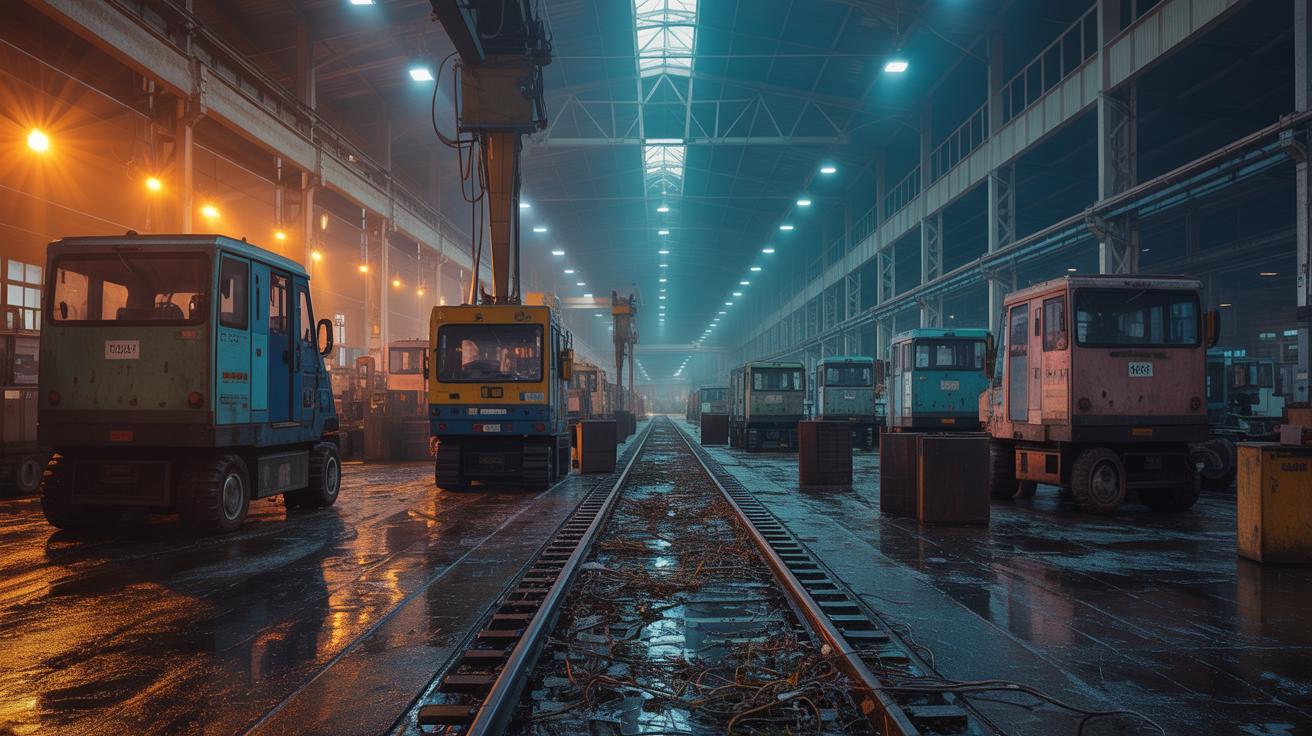What You Need to Know
- 📉 European industries face disruption as China’s export restrictions on rare earth elements create supply chain challenges.
- ⚙️ These critical materials are essential for manufacturing high-tech products, including smartphones and electric vehicles.
- 🌍 China’s dominance in the rare earth market has significant geopolitical implications, influencing international trade dynamics.
- 🔄 The EU is actively seeking alternative sources and sustainable solutions to reduce dependence on Chinese supplies.
- 🤝 Collaborative efforts are underway to secure a diversified supply chain and ensure the resilience of European industries.
The European Union’s industrial landscape is facing a significant challenge as China tightens its grip on the export of rare earth elements. These elements are critical for the production of high-tech goods, including smartphones and electric vehicles. Recent restrictions imposed by China have not only disrupted supply chains but have also caused a ripple effect across global markets. As European companies scramble to adapt, there’s a growing urgency to address these constraints. This article delves into the intricate dynamics of this geopolitical maneuver and examines its profound impact on European industries.
The Strategic Importance of Rare Earth Elements
Rare earth elements, comprising 17 chemical elements, play a pivotal role in modern technology. They are essential for manufacturing a wide range of products, from smartphones to electric vehicles and advanced defense systems. The unique properties of these elements make them indispensable in the production of high-performance magnets, catalysts, and alloys. Among the most crucial rare earths are dysprosium, samarium, and yttrium, which are used extensively in the automotive and electronics industries.
China’s dominance in the rare earth market is a well-established fact, with the country accounting for a significant portion of global production and supply. This strategic advantage allows China to exert considerable influence over international markets. The recent restrictions are seen as a response to geopolitical tensions, particularly with the United States, and have inadvertently impacted European industries. As EU companies struggle to secure these critical materials, the need for alternative sources and sustainable solutions becomes increasingly urgent.
Impact on European Industries
The ramifications of China’s export restrictions are being felt across the European Union, with industries experiencing severe disruptions in their supply chains. Manufacturers of high-tech goods are particularly affected, as they rely heavily on a steady supply of rare earth elements for production. Companies have reported halts in production lines, leading to delays and increased costs. The automotive sector, a cornerstone of European industry, is facing significant challenges as it struggles to adapt to the dwindling supply of essential materials.
Moreover, the electronics sector, which depends on rare earths for components like screens and batteries, is grappling with similar issues. The situation is exacerbated by limited approvals from Chinese authorities for export licenses, creating a bottleneck that further compounds the problem. European businesses are now exploring alternative sources and increasing efforts to recycle rare earths from existing products. However, these solutions require time and investment, highlighting the urgent need for a coordinated response at the EU level.
China’s Geopolitical Strategy
China’s decision to impose restrictions on rare earth exports is widely perceived as a strategic move in response to rising geopolitical tensions, particularly with the United States. The announcement came shortly after President Donald Trump introduced “reciprocal tariffs” on Chinese goods, escalating the trade dispute between the two countries.
By leveraging its control over rare earths, China is sending a clear message about its capability to influence global markets and assert its economic interests. This move has left European industries caught in the crossfire, as they are inadvertently affected by measures primarily aimed at the US. As a result, the EU is now confronted with the challenge of balancing its trade relations with both China and the United States while safeguarding its industrial interests.
Seeking Solutions and Alternative Sources
In response to the crisis, the European Union is actively seeking solutions to reduce its dependence on Chinese rare earths. One approach is to invest in the development of alternative sources, such as rare earth deposits in other countries. Efforts are also underway to enhance recycling programs to recover rare earths from used products, thereby creating a more sustainable supply chain.
Furthermore, the EU is exploring partnerships with other nations to secure a diversified supply of these critical materials. Collaborative research initiatives are being launched to develop new technologies that could reduce the reliance on rare earths in manufacturing processes. These efforts are crucial for ensuring the long-term resilience of European industries and mitigating the risks associated with geopolitical dependencies. As the EU navigates these challenges, the focus remains on innovation and collaboration to secure its industrial future.
The unfolding rare earth crisis highlights the complex interplay between global trade, geopolitics, and industrial dependency. As European industries grapple with the consequences of China’s export restrictions, the need for strategic diversification and sustainable practices becomes increasingly apparent. Will the EU succeed in reducing its reliance on Chinese rare earths, or will it continue to face vulnerabilities in an ever-evolving global economic landscape?
Did you like it?4.5/5 (22)







7 comments
pepper
Oh no, my phone’s gonna get more expensive! 😟 Who knew rare earths could cause such a stir?
StellaNova
Thanks for the insights, but what are the potential environmental impacts of increasing rare earth mining in other regions?
LeoZenith
This is a classic case of not putting all your eggs in one basket. The EU really needs to diversify its supply chain!
robert
So, does this mean we’ll see a price hike in smartphones and EVs soon? This could really hit consumers hard.
miamonolith
Why don’t they just start mining asteroids? 😄 I mean, we’re all talking about space mining, aren’t we?
skylarwhisper
Great article, thanks for sharing! It’s interesting to see how geopolitical tensions can directly impact tech industries globally.
Lauren
Wow, this is a wake-up call for the EU! How do you think they can diversify their rare earth sources effectively? 🤔